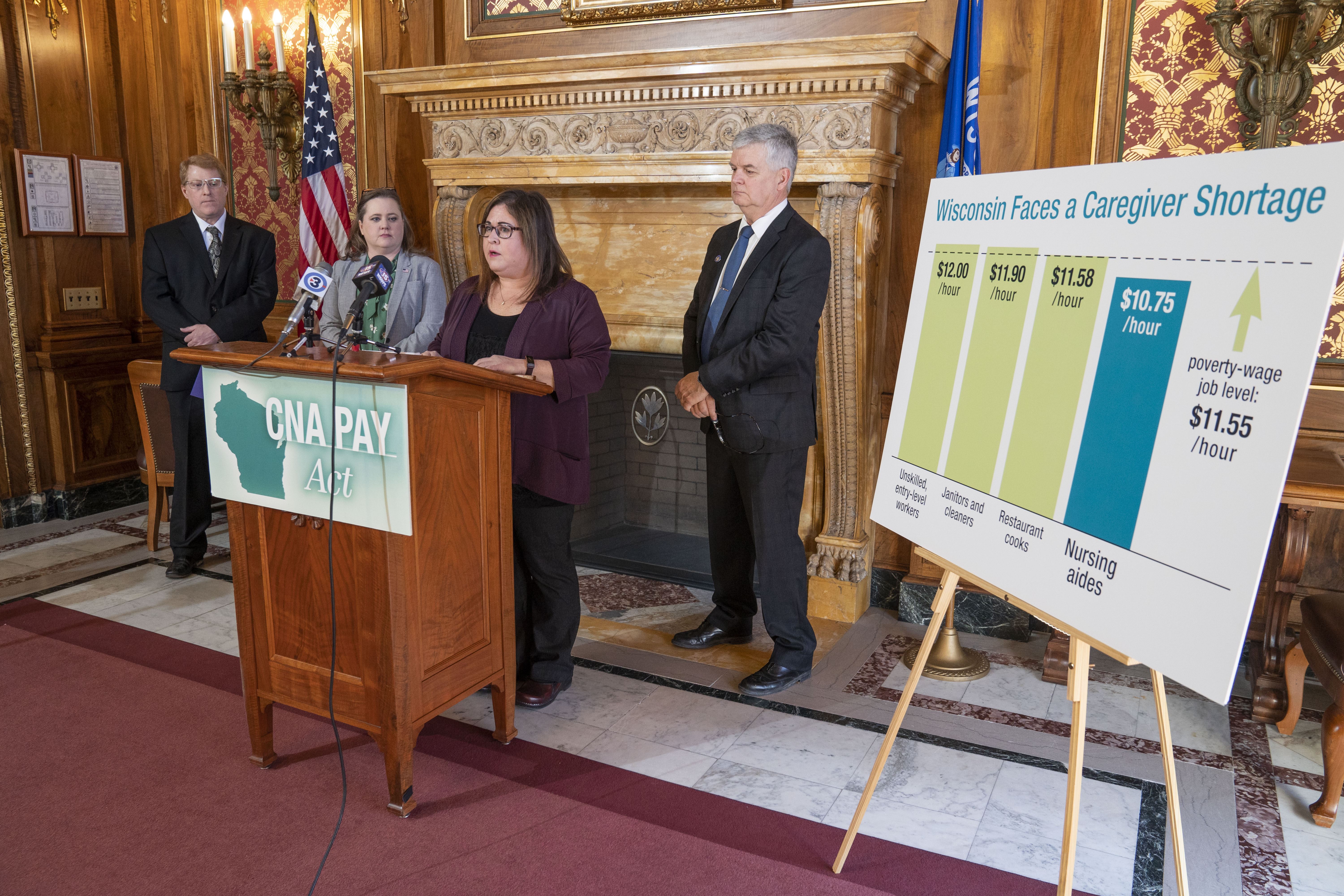FOR IMMEDIATE RELEASE
DATE: March 26, 2019
CONTACT:
Rep. Subeck, (608) 266-7521
Rep. Brostoff, (608) 266-0650
Sen. Johnson (608) 266-2500
Sen. Smith (608) 266-8546
Democrats Introduce CNA Pay Act
MADISON – Today, Representative Lisa Subeck (D-Madison), Representative Jonathan Brostoff (D-Milwaukee), Senator LaTonya Johnson (D-Milwaukee), and Senator Jeff Smith (D-Eau Claire) introduced the CNA Pay Act. The three pieces of legislation included in the act would increase wages and expand access to training for nursing aides and personal caregivers working on the frontlines of long-term care and nursing facilities.
The CNA Pay Act introduction coincided with an Assembly hearing on AB 76, which would reduce the required number of hours of training a CNA is required to complete, potentially diminishing quality of care. With 16,500 currently vacant personal care worker positions and demand for CNAs in Wisconsin projected to grow exponentially due to growth in the aging population, immediate action is needed to raise wages of these caregivers to address the workforce shortage.
“Wisconsin faces a significant and growing shortage in personal care workers and nursing assistants, and there is no clear evidence that reducing the hours of required training for these skilled nursing aide positions will change that,” said Rep. Subeck. “It is time that we pay those who care for our most vulnerable family members and neighbors a living wage and treat them with the respect they deserve as professionals. That is why we propose increasing wages and making training more accessible and affordable.”
According to a joint report by the Wisconsin Health Care Association, Wisconsin Center for Assisted Living, Wisconsin Assisted Living Association, LeadingAge Wisconsin, and Disability Service Provider Network, the median starting wage for personal caregivers in Wisconsin is $10.75 per hour. The same report indicates that the median wage paid by non-health care employers for unskilled, entry level workers is $1.25 more than the wage paid to these caregivers. CNAs continue to leave the industry at high rates for jobs with higher wages and better benefits.
“From lifting patients into their beds to bathing or dressing them to taking their vital signs, CNAs are on the front lines of providing personal care to those who need it the most,” said Sen. Johnson. “We want to ensure access to training, making it easier for new CNAs to be certified.”
“The caregiver workforce shortage has had a profound impact on Western Wisconsin,” said Sen. Smith. “That’s why it’s so important that we expand access to CNA training in underserved areas by providing resources to our local technical colleges and providing CNAs with a tax credit for their tuition costs.”
“CNAs in Wisconsin have a really hard job. If we expect them to take care of us and our loved ones, we need to take care of them,” said Rep. Brostoff. “They are vital members of our community doing vitally important work. We ought to ensure they receive a wage that makes the expense of training worthwhile.”
LRB-2460 would create a tax credit for tuition costs for CNAs. After working for 1 year as a CNA, an individual can claim a one-time $1500 capped refundable tax credit for the cost of CNA training.
LRB-0960 would provide $500,000 annually to give grants to technical colleges in order to expand access to CNA training in underserved areas.
LRB-0981 would increase the Medicaid reimbursement rate for personal care services by accepting the Federal Medicaid expansion dollars. The bill requires that the reimbursement increase go directly to increasing wages of frontline caretakers. Copies of the bills and related materials are attached.
###




